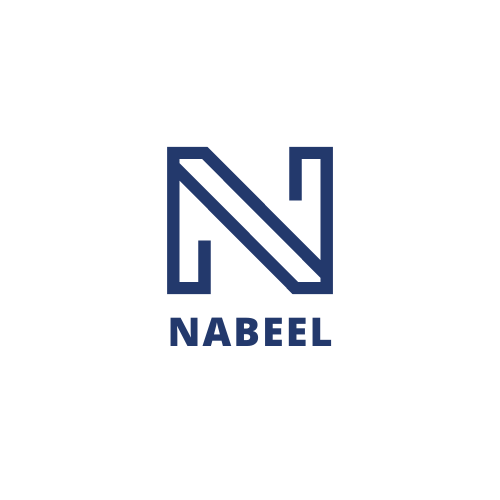Home Users: Cloud Storage vs NAS Decision Guide 2025
In the ever-evolving world of data storage, home users face a critical decision: Should they opt for cloud storage or invest in a Network Attached Storage (NAS) system? As technology advances, both options offer unique advantages and potential drawbacks. This guide aims to help you make an informed choice tailored to your needs in 2025. Let’s dive into the details! 🌟
Table of Contents
1. Introduction
2. Understanding Cloud Storage
3. Exploring NAS Systems
4. Key Factors to Consider
5. Cost Comparison
6. Security and Privacy
7. Accessibility and Convenience
8. Scalability and Flexibility
9. Conclusion
10. FAQs
Introduction
Whether you’re a digital hoarder or a casual user, the need for reliable data storage is universal. With countless photos, videos, and documents accumulating on our devices, choosing the right storage solution is essential. In 2025, the decision between cloud storage and NAS has never been more significant. This guide will explore both options, helping you determine which suits your lifestyle and needs best.
Understanding Cloud Storage
Cloud storage is an online service that allows users to store data on remote servers accessed via the internet. Major providers like Google Drive, Dropbox, and OneDrive offer scalable options, making it easy for users to store and share files from anywhere in the world. But what makes cloud storage so appealing? Let’s explore.
Pros of Cloud Storage:
– Accessibility: Access your files from any device with an internet connection. 🌍
– Automatic Backups: Most services automatically sync and back up your data.
– Collaboration: Easily share files and collaborate with others in real-time.
– Scalability: Increase storage space without physical hardware upgrades.
Cons of Cloud Storage:
– Recurring Costs: Subscription fees can add up over time.
– Internet Dependency: Requires a stable internet connection for access.
– Privacy Concerns: Data stored on third-party servers might be susceptible to breaches.
Exploring NAS Systems
Network Attached Storage (NAS) is a dedicated device connected to your home network, providing centralized data storage. NAS systems are essentially mini-servers that allow multiple users to store and access data locally. But why consider a NAS system in 2025? Let’s investigate.
Pros of NAS Systems:
– Data Ownership: Complete control over your data and storage solution.
– Offline Access: Access your files even without an internet connection.
– Customizability: Tailor the system to your specific needs with various apps and configurations.
– No Recurring Fees: One-time purchase cost without ongoing subscription fees.
Cons of NAS Systems:
– Initial Cost: Higher upfront cost for hardware and setup.
– Technical Knowledge: Requires some tech savvy for setup and maintenance.
– Limited Remote Access: While possible, remote access can be complex to set up.
Key Factors to Consider
When choosing between cloud storage and NAS, several key factors should guide your decision:
Cost Comparison
Cost is a significant factor when deciding on a storage solution. Cloud storage typically involves ongoing subscription fees, which can become costly over time, especially for large storage needs. NAS, while requiring a more substantial upfront investment, avoids these recurring costs. Consider your budget and long-term storage needs to decide which option is more cost-effective for you. 💰
Security and Privacy
Security is paramount. Cloud storage providers often offer robust security measures, but storing your data on third-party servers might raise privacy concerns. NAS systems provide complete data ownership and control, offering peace of mind for those prioritizing privacy.
Accessibility and Convenience
Think about how you plan to access your data. Cloud storage excels in accessibility, allowing you to retrieve files from any internet-connected device. NAS, while offering local access and offline capabilities, requires a bit more setup for remote accessibility.
Scalability and Flexibility
Consider future-proofing your storage solution. Cloud storage allows for easy scaling as your storage needs grow. NAS systems can be upgraded with additional drives, but this might require more technical know-how.
Conclusion
Ultimately, the decision between cloud storage and NAS depends on your specific needs, preferences, and technical comfort level. Cloud storage offers unmatched convenience and accessibility, while NAS provides unmatched control and ownership. Assess your priorities, budget, and future needs to make the right choice for 2025. Happy storing! 📦
FAQs
Q: Can I use both cloud storage and NAS?
A: Yes, many users choose a hybrid approach, utilizing the strengths of both solutions for maximum flexibility and security.
Q: Is NAS difficult to set up?
A: While NAS setup can be more complex than cloud storage, many modern NAS systems come with user-friendly interfaces and guides to simplify the process.
Q: Which is better for families?
A: It depends on the family’s tech comfort level and storage needs. NAS offers centralized control and offline access, while cloud storage offers easy sharing and accessibility across multiple devices.
Q: What about data recovery?
A: Both cloud storage and NAS have data recovery options. Cloud services often include versioning and file recovery, while NAS systems may require additional backup solutions.



